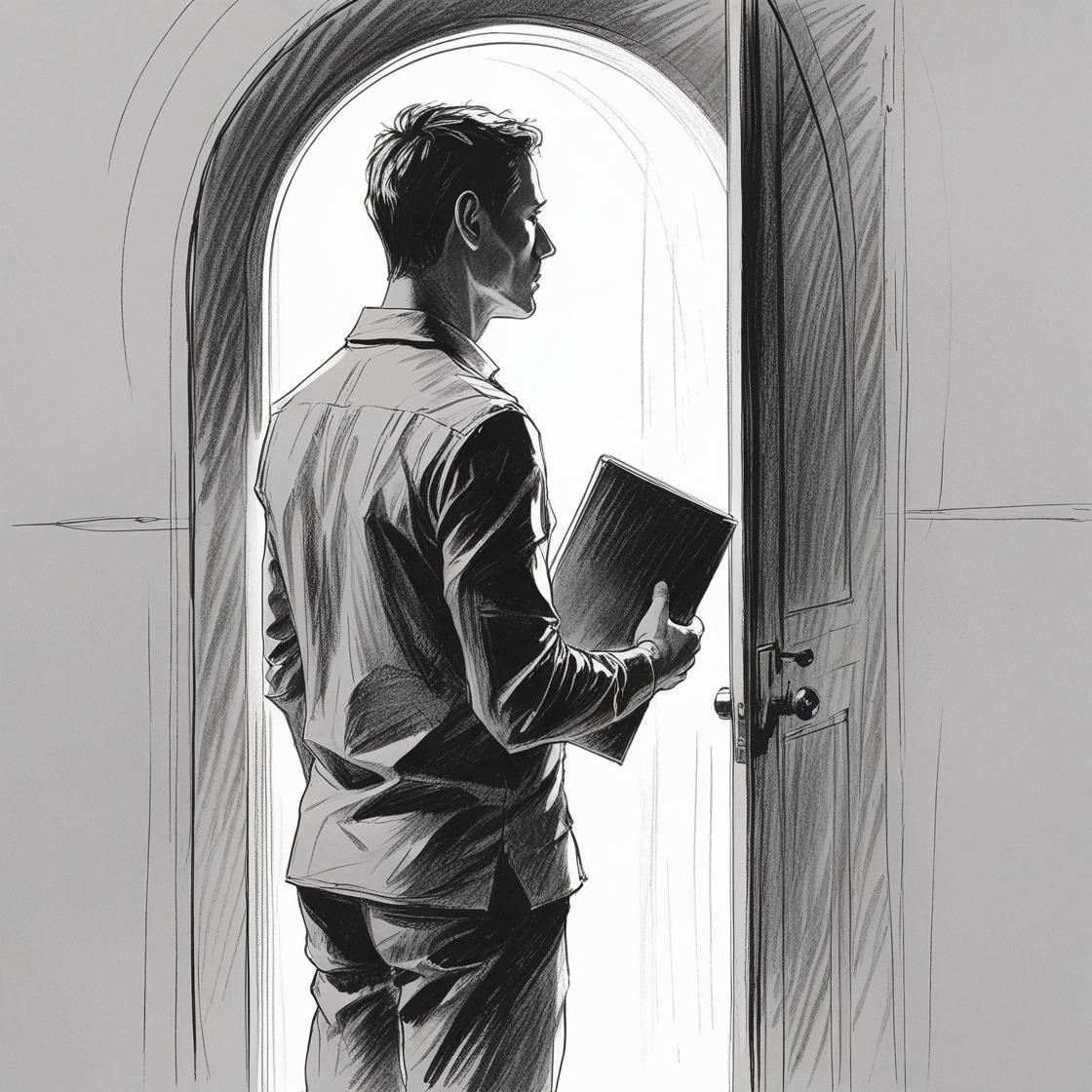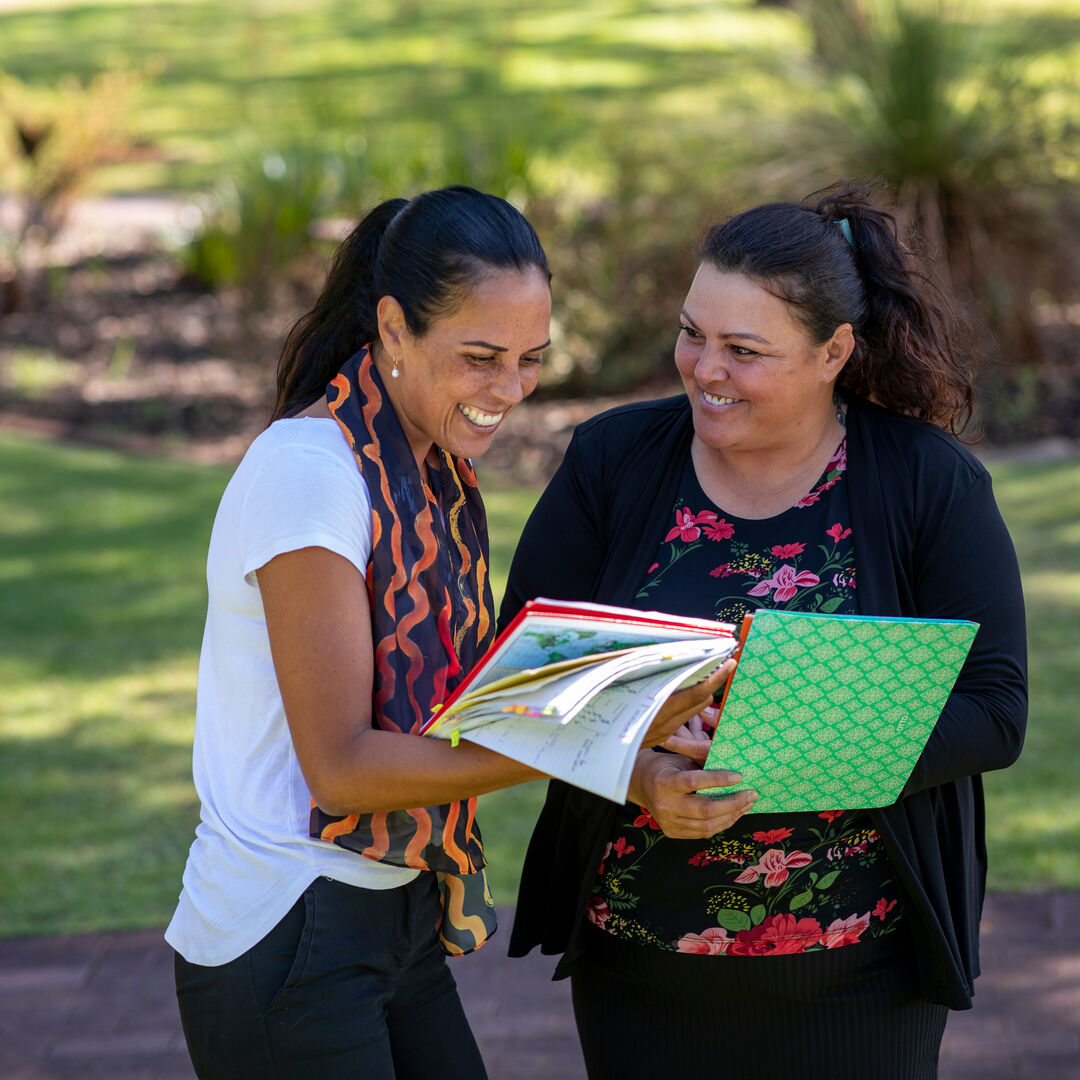
Changing careers can feel intimidating. You’re stepping away from what you’ve known for years and the uncertainty of starting something new can be unnerving, especially if you’re further along in your career and have spent decades building experience in one field.
Still, many Australians are making that shift. According to the Australian Bureau of Statistics, 1.1 million people changed jobs in the year ending February 2024, representing a job mobility rate of 8 per cent.
Luke Lawrence is an example of an individual who made the leap. After working in finance for 20 years, he made the decision to pivot into psychology and begin a new professional chapter. This article shares Luke’s story, including what motivated the change, what it was like to start again in his 30s and how he navigated the transition.
About Luke Lawrence
Luke began his professional career in finance, working part-time as a credit and collections specialist at Hewlett-Packard (HP). Over the next 20 years, he progressed through a range of finance roles, eventually moving into leadership positions where he led teams at companies such as Fuji Xerox Australia, Hertz and Domain. His final role in finance before pivoting to psychology was as a finance analyst with Linx Australia Group.
Today, Luke has been working as a psychologist for five years. His current work spans private practice, occupational rehabilitation, advisory work and tutoring postgraduate psychology students at the University of New England.
🧑🏫Learn more about what Luke’s day-to-day life as a psychologist looks like here.
Signs it was time for a career change

A quiet interest that kept growing
Luke’s interest in psychology wasn’t something that happened overnight. It had been quietly building in the background for years, even as he progressed through a successful career in finance.
“For the first 10 years [in finance], I was very serious about getting into upper management in companies,” he explains. “I wanted the focus of the role to be one-on-one meetings, coaching sessions, leadership meetings and supporting people in a leadership role.”
Once he stepped into a leadership position and leaned further into people-focused responsibilities, however, it made him realise that psychology – something he was always interested in – could be the right fit.
“I liked working [in leadership] so much that I started to think, well, this passion that I have for psychology, maybe I could actually pursue that. Because working with people and helping people achieve whatever it is they want in their life, that’s something I could do.”
Looking towards something more
Despite the growing pull towards psychology, Luke continued working in finance for several more years. While there were roles that he enjoyed, there were also moments of dissatisfaction that gradually became harder to ignore.
“I burnt out a little bit and started to feel like [my job] just wasn’t an important role for me to be in,” he says. “The changes that I was able to make didn’t feel significant enough in people’s lives and I started to care less about the success of the company.”
As those thoughts lingered, the idea of switching careers started to take hold. “I started to think that maybe psychology is the best pathway for me to take,” he explains. The more it felt like a shift into psychology was inevitable, the harder it became to stay engaged in his current role. He began questioning the value of what he was doing with thoughts like, “How important is all of this really, if you’re going to bail out in the next few years anyway?”
Making the career change
The turning point came when a role Luke loved came to an unexpected end. He enjoyed the team he was working with and had great rapport with people across the business so leaving the company left him “a bit heartbroken” and as he puts it, “really took the shine off future roles” in finance.
Although he continued working in finance roles after that, leaving this role prompted him to seriously consider psychology as a viable career option.
Ultimately, however, it was the pressure of time that accelerated his decision. Luke knew he had to get started sooner than later as pursuing psychology would involve a significant educational investment. “I didn’t want to wait any longer. I wanted to get this going, because I knew it was going to be at least six years before I could work in the industry.”
He also recognised that if he delayed the switch much longer, he might not have enough time to enjoy the career he wanted in psychology. “ I want enough time to really have a career in psychology, not just do it for 10 years,” he states.
Starting again in his 30s

When Luke decided to pivot into psychology, he was in his mid-30s, a stage in life where changing careers can feel daunting. One of his biggest concerns was, “What if I don’t like it? What if I do six years of intensive study, including an honours and a master’s year, which I knew was going to be taxing and I end up not liking it?”
What helped ease the doubt was the flexibility psychology offered. “I was able to reassure myself that it’s not just one thing that I have to do. I could do many different things as a psychologist, so if one thing didn’t work out, I could try another.”
Planning for the long-term
Financial considerations also weighed heavily on his mind. “I was aware that eventually I’d have to take a serious hit financially for a period of time,” he says. “But my goal was always to start my own practice and I knew that it would enable a pretty substantial increase in earnings. So it felt like a short-term loss financially for a longer-term potential gain.”
While others undergoing a career change in their 30s might wrestle with more doubt, whether it’s worrying about how others will react or thinking that they’re too old to start over, Luke had thought about the shift long enough that the uncertainty didn’t feel as overwhelming.
“I could imagine if it was a spur-of-the-moment thing, if I’d made the decision after being disgruntled at work or something like tfohat, there would be a lot more uncertainty and fear around it. But I had been thinking about it for a long time.”
Having a clear path forward also made a big difference. “As much as possible, I had a plan,” Luke explains. “I knew enough that when I got my general registration, I would be able to do whatever I wanted. If I wanted my own practice, I could do that, or I could apply for telehealth, organisational roles – whatever worked best.”
Age shouldn't hold you back
Luke also shared that age shouldn’t be a real limitation, especially when it comes to a career in psychology. “I’d like to say that in terms of age, I wouldn’t get too hung up on it. I think the older you get in some careers, that might make you less employable, but not as a psychologist. There’s no real age limit on that. I think you’re actually at a better place if you’re a bit older because you’re probably going to be taken a bit more seriously as someone who’s got a few more years of life experience and wisdom.”
Managing the career change

Going back to study as a mature-age student
Returning to university after more than a decade in the workforce came with its share of challenges. “The adjustment to studying again was huge. And after, you know, 10 plus years or more of not being in a student environment, that was a big adjustment,” Luke shares. “Having to get my head into academia as opposed to the practical challenges of turning up to work, it was very different.”
That being said, several factors helped with easing the transition. Having previously completed tertiary study, Luke brought with him a solid foundation in academic literacy, something he recognises made studying again more manageable. In addition, he also had a basic understanding of health and biology concepts, which aided him in understanding the course content.
Familiarity with the university he was studying at also made a difference. Having previously studied at the university where he undertook his psychology studies, Luke found the transition to be “relatively smooth” and added that “it was kind of like coming home again in some ways.”
Lastly, his professional experience also played a key role. With a decade of leadership experience in finance and accounting, Luke had already developed core skills in managing people, coaching and mentoring. So instead of having to build those skills from scratch, he just needed to learn how to apply them in a clinical setting.
🧑🏫Learn more about studying online as a mature-age student here.
Balancing work and study
Luke continued to work throughout his studies, though it wasn’t easy balancing both. What made it possible, however, was the flexibility of online learning. “I wouldn’t have been able to do it if it wasn’t online. That allowed me the flexibility to be able to work and study at night, which was hard but made it possible as opposed to impossible.”
He also found the online learning platform to be intuitive and easy-to-use, appreciated the self-paced nature of the course and liked how it was easy to connect with tutors and lecturers whenever needed.
Over time, however, balancing full-time work with study became unsustainable, so he eventually moved into another part-time job that could fit around his master’s. “I eventually stepped down during my master’s to a part-time grief counselling position where I was outreach – calling people who had just lost a family member and reaching out to see if they needed support. I’d get a list of people to call and I’d call them whenever I could.”
While it offered him the flexibility he needed, it was a step down from what he was getting paid in his previous role. He was, however, able to manage this challenging period with the help of his partner at the time and shared that their support helped make things easier.
🧑🏫 Discover more tips on balancing work, life and postgraduate study here.

Managing the long journey
With it taking around six years to become a psychologist, Luke admits that the journey was arduous and at times, could feel discouraging. “Because the end point felt so far away for so long. Especially in the second year, third year, I’d have to remind myself – you’ve still got three years to go. And that was a bit soul-destroying at times.”
He found that a good way to get through it was to take things one step at a time and break the path down into smaller, more achievable goals. “I was able to see every day as a small hill I needed to climb and not necessarily as this huge insurmountable task or mountain.”
After every small task that he’s achieved, he also took the time to celebrate, acknowledge and reflect on the achievement before moving on.
Growing confidence and support
What also aided Luke and motivated him was the growing confidence he felt as he progressed through each stage of his studies. “It felt like as I was going through the degree more and more, that it was increasingly the right decision that I made. That we actually need more psychologists, that this is going to be a career that I’m always going to be in demand. So it felt like as I went along, I was more and more reassured that I had made the right decision.”
That growing certainty was also reinforced by the support systems around him. “And again, credit to the support I had from the university to get me through as well. I’m sure there’s that level of support across most communities that offer that sort of program but I had supervision all the way along with very reassuring lecturers. There was just a lot of support there that helped with some of that uncertainty.”
Life after the career change
Now, five years into his psychology career, Luke reflects on the career change and states, “I’m happy overall, yes. I think it was the right decision to make and I don’t regret the career change at all. I’d never go back on it.”
That being said, the reality hasn’t always been smooth sailing. “It hasn’t always been perfect or easy,” he admits. “Burnout is real and I’m not alone. I know a lot of psychologists who’ve had to step back for a while just to keep going.” For Luke, taking on a more varied mix of work has helped lighten the load. “I’ve moved into another area of psychology for a few days a week to take the pressure off.”
Compared to his earlier career in finance, however, the move into psychology has offered Luke a greater sense of purpose, allowing him to connect with people and create the kind of impact he’d been searching for.
Looking ahead, Luke sees psychology as the path he’ll stay on. “Psychology will probably make up the second half of my working life. I spent the first half doing something that was satisfying for the most part and now I’m moving into something different and I think it will see me through to my retirement.”
Tips for others considering a career change
While changing careers can be rewarding, it’s not something that should be taken lightly. Here, Luke offers some practical advice for those thinking about making the switch to a different career.
-
Take the time to consider if it’s right for you
A career change is a big decision and Luke recommends taking the time to reflect on whether it’s truly the right path. He shares, “Take the time to consider if it’s the right thing for you as it’s not going to be the right thing for everyone. Don’t rush into it because it is a big commitment to make.” -
Understand the committment
Before making the switch to psychology, Luke made sure to have an understanding of what the journey to becoming a psychologist would entail. “I had some information in front of me about which pathway to go down to become a psychologist so I knew what I was getting into. I knew that I was going to have to do an undergrad degree, an honours year and then either a master’s or a PhD.”He also knew what educational pathway he wanted to take and opted for the graduate diploma route to help fast-track his studies. “I wanted to take advantage of the graduate diploma because that effectively took a year off the requirement.”
🧑🏫 Learn more about how to become a psychologist here.
-
Take your personal circumstances into consideration
Changing careers can impact your family life, social time and financial stability, especially if further study is required.As Luke states, “It [pursuing a degree] gets in the way of how much time you can spend with your partner, kids, friends and family. So this is why I’d say you need to take the time to consider whether it’s going to work because it is a commitment from day one.”
-
Think about the study delivery format
If you’re planning to work while studying, Luke shares that the delivery mode can affect how well you can balance your studies with personal responsibilities.“Look at the mode of delivery that the university has. Is it all online or is it a hybrid approach? If you want to work whilst studying, then you’re going to need a mode of delivery that allows you to study at a time that suits you.”
🧑🏫Contemplating between an online or on-campus postgraduate course? Discover the pros and cons of each here.
-
Be ready to take on ongoing professional commitments
Depending on your new career path, ongoing education may be required. In psychology, for instance, staying in the field means committing to continuous professional learning.As Luke explains, “Psychology is not a career that you can rest on. It’s highly regulated and you do have to maintain registration to be able to work. That means a level of commitment to study and do continued professional development (CPD), which takes time.”
-
Don’t be afraid to ask for support
If you’re unsure about switching careers, Luke encourages speaking directly with professionals in the field.In the case of psychology, for example, Luke recommends speaking with a practising psychologist. “I’d say talk to someone about it. Whether it’s booking in with a psychologist for a consultation or reaching out to the Australian Psychological Society (APS) or the Australian Association of Psychologists (AAPI), they have consultancy services where you can speak to someone about the career and learn more about what it’s like and what to expect.”
Ready for a career change?
Luke’s story is a reminder that career change is possible, even after years in a different profession.
If you’re considering a move into the healthcare industry, GlobalHealth Education’s university partners offer postgraduate courses in psychology, counselling, mental health, nursing, public health and social work. To apply, simply select a course and enquire to speak with a Student Enrolment Advisor.
Book a complimentary professional development strategy call with our Education Consultant.
















